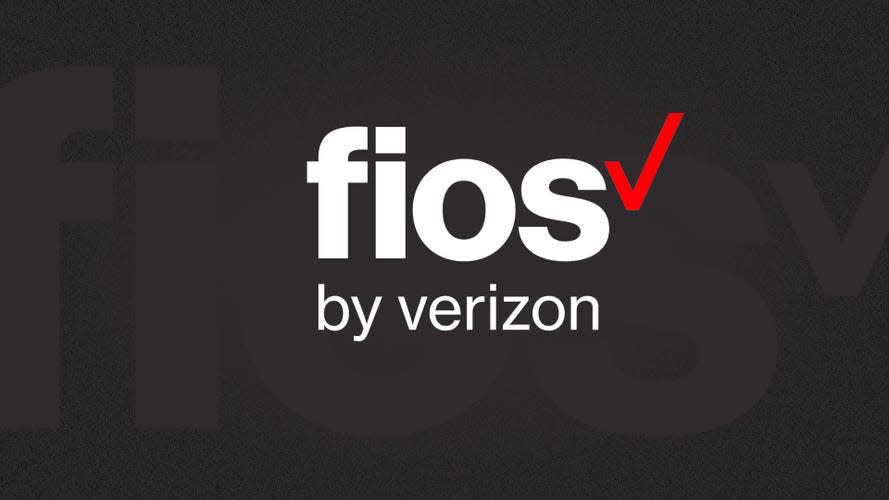What is the best internet provider in Norfolk?
Cox Communications is CNET’s top recommendation for internet in Norfolk, thanks to its fast speeds and broad availability across the city. It’s the best bet for most households but if Cox isn’t in your area, Verizon Fios and T-Mobile Home Internet are strong alternatives that deliver solid value.
If you’re focused on keeping monthly costs low, Metronet offers one of the cheapest plans for about $35 per month. T-Mobile and Verizon fixed wireless customers may also qualify for discounts that bring their bills down to the same price. For those who need faster connections, Cox has a 2Gbps plan for $120 monthly, with no contract or extra equipment fees.
Our methodology
CNET considers speeds, pricing, customer service and overall value to recommend the best internet service in Norfolk across several categories. Our evaluation includes referencing a proprietary database built over years of reviewing internet services. We validate that against provider information by spot-checking local addresses for service availability. We also do a close read of providers’ terms and conditions and, when needed, will call ISPs to verify the details.
Despite our efforts to find the most recent and accurate information, our process has some limitations you should know about. Pricing and speed data are variable: certain addresses may qualify for different service tiers, and monthly costs may vary, even within a city. The best way to identify your options is to plug your address into a provider’s website.
Also, the prices, speed and other information listed above and in the provider cards below may differ from what we found in our research. The cards display the full range of a provider’s pricing and speed across the US, according to our database of plan information provided directly by ISPs. At the same time, the text is specific to what’s available in Norfolk. The prices referenced within this article’s text come from our research and include applicable discounts for setting up automatic payments each month — a standard industry offering. Discounts and promotions might also be available for signing a term contract or bundling multiple services.
Visit our full methodology page to understand how we review internet providers.
Best internet in NorfolkVerizon Fios
In addition to providing one of the best 5G networks in the country, Verizon also offers a fiber-optic connection with symmetrical download and upload speeds. Verizon Fios is one of the only fiber ISPs in the area besides Metronet’s and Cox’s small fiber coverages.
Availability: Verizon internet service is available to about 65% of Norfolk, but that’s mostly its fixed wireless network. Verizon Fios reaches about 28% of Norfolk households, according to the FCC.
Plans and pricing: Verizon Fios offers four plans: 300Mbps for $50, 500Mbps for $75, 1 gigabit for $90 and 2 gigs for $110. If you’re already a mobile customers you can save on your monthly bill.
Fees and service details: Similar to its 5G Home Internet service, Verizon Fios includes unlimited data and doesn’t require a contract or monthly equipment costs.

verizon-fios-cnetbb-logo-c.jpg
Source: CNET analysis of provider data.
Other available internet providers in Norfolk
-
Metronet: Only available to a small percentage of residents, Metronet is one of the only fiber providers in Norfolk besides Verizon Fios. This provider offers plans up to 2 gigabits in speed, costing only $70 per month.
-
Spectrum: While you won’t find coverage directly in Norfolk, households in Suffolk and Chesapeake can access Spectrum’s services as low as $50 per month for 300Mbps of speed. Spectrum is worth checking out if Cox is not available at your address.
-
Satellite internet: Satellite internet from HughesNet, Viasat or Starlink is an option wherever you live. But it shouldn’t be your first choice: satellite internet’s high prices and slow speeds mean cheaper and faster options should be available.
-
Verizon 5G Home Internet: If Verizon Fios isn’t available at your location, the provider’s fixed wireless service might be. Verizon 5G Home Internet offers two monthly plans, costing $50 to $70 for up to 1 gigabit of speed.
Cheap internet options in Norfolk
The average starting price for internet in Norfolk is around $44, but there are a couple of options under that price if you’re looking to pay the least amount of money each month on home broadband. Metronet’s base plan costs $35 monthly for up to 150Mbps. However, eligible mobile customers under T-Mobile or Verizon can receive a $15 to $25 discount each month, lowering your bill to only $35.
Source: CNET analysis of provider data.
How to find internet deals and promotions in Norfolk
The best internet deals and top promotions in Norfolk depend on what discounts are available during that time. Most deals are short-lived, but we look frequently for the latest offers.
Norfolk internet providers, such as Cox and Spectrum may offer lower introductory pricing or streaming add-ons for a limited time. Many, including Verizon and T-Mobile, run the same standard pricing year-round.
For a more extensive list of promotions, check out our guide on the best internet deals.

Photo by Ferrantraite/Getty Images
How fast is Norfolk broadband?
The nearby city of Richmond places among the bottom five for the fastest broadband speeds across the US. So how does Norfolk stack up? According to Ookla Speedtest data, Norfolk’s median download speed is 303Mbps, much faster than Richmond’s 253Mbps. (Ookla is owned by the same parent company as CNET, Ziff Davis.)
If you’re looking for service faster than the city’s median speed, consider Cox’s or Verizon’s 2,000Mbps plan, costing $120 and $110 per month respectively. Spectrum, Metronet and Verizon also offer gigabit speeds, but it depends on which providers are available at your household.
Source: CNET analysis of provider data.
What’s a good internet speed?
Most internet connection plans can now handle basic productivity and communication tasks. If you’re looking for an internet plan that can accommodate videoconferencing, streaming video or gaming, you’ll have a better experience with a more robust connection. Here’s an overview of the recommended minimum download speeds for various applications, according to the FCC. Note that these are only guidelines — and that internet speed, service and performance vary by connection type, provider and address.
For more information, refer to our guide on how much internet speed you really need.
-
0 to 5Mbps allows you to tackle the basics — browsing the internet, sending and receiving email, streaming low-quality video.
-
5 to 40Mbps gives you higher-quality video streaming and videoconferencing.
-
40 to 100Mbps should give one user sufficient bandwidth to satisfy the demands of modern telecommuting, video streaming and online gaming.
-
100 to 500Mbps allows one to two users to simultaneously engage in high-bandwidth activities like videoconferencing, streaming and online gaming.
-
500 to 1,000Mbps allows three or more users to engage in high-bandwidth activities at the same time.
How CNET chose the best internet providers in Norfolk
Internet service providers are numerous and regional. Unlike the latest smartphone, laptop, router or kitchen tool, it’s impractical to personally test every internet service provider in a given city. So what’s our approach? For starters, we tap into a proprietary database of pricing, availability and speed information that draws from our own historical ISP data, partner data and mapping information from the Federal Communications Commission at FCC.gov.
But it doesn’t end there. We go to the FCC’s website to check our data and ensure we consider every ISP that provides service in an area. We also input local addresses on provider websites to find specific options for residents. We look at sources, including the American Customer Satisfaction Index and J.D. Power, to evaluate how happy customers are with an ISP’s service. ISP plans and prices are subject to frequent changes; all information provided is accurate as of publication.
Once we have this localized information, we ask three main questions:
-
Does the provider offer access to reasonably fast internet speeds?
-
Do customers get decent value for what they’re paying?
-
Are customers happy with their service?
While the answer to those questions is often layered and complex, the providers who come closest to “yes” on all three are the ones we recommend. When selecting the cheapest internet service, we look for the plans with the lowest monthly fee, though we also factor in things like price increases, equipment fees and contracts. Choosing the fastest internet service is relatively straightforward. We look at advertised upload and download speeds and consider real-world speed data from sources like Ookla and FCC reports.
To explore our process in more depth, visit our how we test ISPs page.
What’s the final word on internet providers in Norfolk?
In Norfolk, fiber internet through Verizon Fios, Metronet and Cox is available in only a small percentage of addresses, so you may be unable to access it. Instead, Cox’s cable service is your best bet, offering faster speeds and wider coverage than Verizon does.
Internet providers in Norfolk FAQsWho is the cheapest internet provider in Norfolk?
Metronet offers the cheapest plan in the city, however, you might save more money and see faster speeds by choosing T-Mobile Home Internet or Verizon 5G Home Internet. Currently, eligible mobile users under both providers can receive a discount that brings their monthly cost down to $35 monthly.
Which internet provider in Norfolk offers the fastest plan?
Cox is the fastest provider in Norfolk, offering 2 gigabits for $120 with no required contracts.
Is fiber internet available in Norfolk?
Yes. However, 26% of Norfolk households can access a fiber network, according to the FCC. Norfolk has a very small fiber presence, with Cox, Metronet and Verizon Fios being the only providers in the area to offer this type of connection.
What internet provider has the best coverage in Norfolk?
The best coverage in Norfolk will come from Cox, which serves roughly 93% of the city, according to the FCC.
